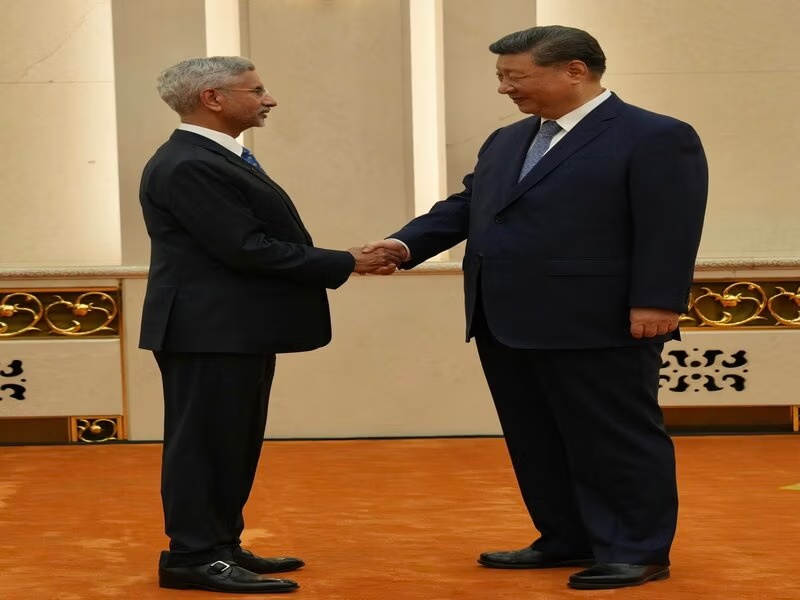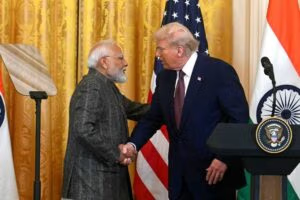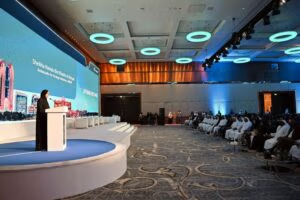In a key diplomatic engagement aimed at recalibrating India-China relations, India’s External Affairs Minister, S. Jaishankar, met with Chinese President Xi Jinping in Beijing on Tuesday. The meeting, which took place during a joint call by the Shanghai Cooperation Organisation (SCO) Council of Foreign Ministers, marks a significant moment in the trajectory of bilateral ties between the two Asian giants.
Jaishankar conveyed warm greetings from President Droupadi Murmu and Prime Minister Narendra Modi to the Chinese leader and apprised him of the current developments in India-China bilateral relations.
“Called on President Xi Jinping this morning in Beijing along with my fellow SCO Foreign Ministers. Conveyed greetings of President Murmu & PM Modi. Apprised President Xi of recent developments in our bilateral ties. Value the guidance of our leaders in that regard,” Jaishankar posted on X (formerly Twitter).
This is Jaishankar’s first visit to China since the 2020 Galwan Valley clash, which brought India-China relations under intense strain. His trip to China comes in the context of the SCO Foreign Ministers’ Meeting in Tianjin, where regional security, cooperation, and connectivity are top of the agenda.
High-Level Engagements Aim to Restore Normalcy
On Monday, Jaishankar held a series of high-level meetings with Chinese counterparts, including Chinese Foreign Minister Wang Yi and Vice President Han Zheng. He also met Liu Jianchao, Minister of the International Department of the Chinese Communist Party.
During talks with Wang Yi, the External Affairs Minister emphasised the need for a long-term strategic view and greater coordination to address lingering bilateral issues.
“We must address the border situation, revive people-to-people exchanges, and remove trade restrictions,” Jaishankar said, adding that India-China relations must rest on mutual respect, mutual interest, and mutual sensitivity.
He also reiterated India’s position that further normalisation of bilateral ties could deliver mutual benefits and global stability, especially amid a complex geopolitical landscape.
SCO Summit Context and Regional Priorities
The SCO Council of Foreign Ministers’ Meeting is a precursor to the 25th Summit of the Heads of State Council, scheduled to be held later this year in Tianjin. The SCO currently includes India, China, Russia, Iran, Pakistan, Kazakhstan, Kyrgyzstan, Tajikistan, Uzbekistan, and Belarus.
Jaishankar’s visit is also significant given the 75th anniversary of diplomatic relations between India and China. Notably, he welcomed the resumption of the Kailash Mansarovar Yatra, which had been suspended since 2020 due to pandemic-related restrictions and border tensions.
India’s engagement with the SCO has intensified in recent months. Defence Minister Rajnath Singh and National Security Advisor Ajit Doval also visited China in June to attend SCO-led discussions on regional security and counterterrorism.
India-China Relations Remain a Regional Pillar
While border tensions remain a thorn in bilateral relations, both nations appear to be recalibrating their diplomatic posture through multilateral forums, such as the SCO. With China hosting the current SCO cycle and India having chaired it in 2023, such high-level interactions are seen as a crucial step toward rebuilding trust.
As the geopolitical centre of gravity continues shifting eastward, India-China relations will remain pivotal to shaping the broader strategic stability of Asia.
–Input IANS





